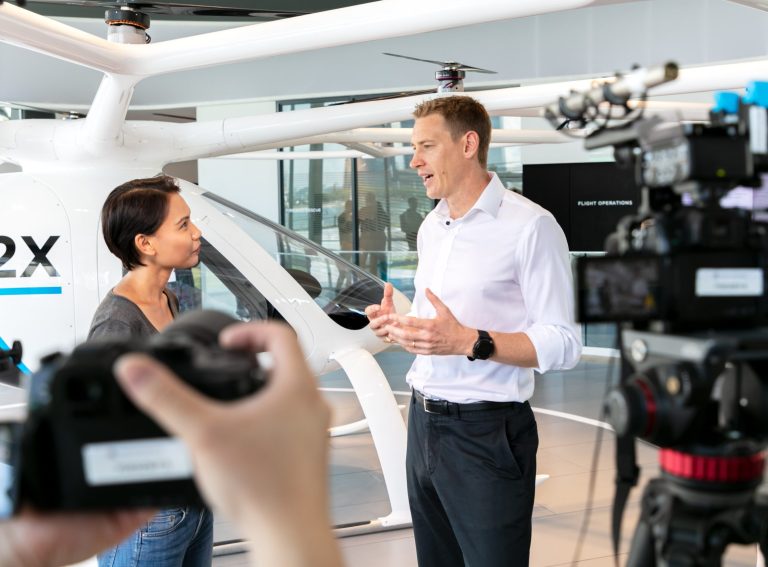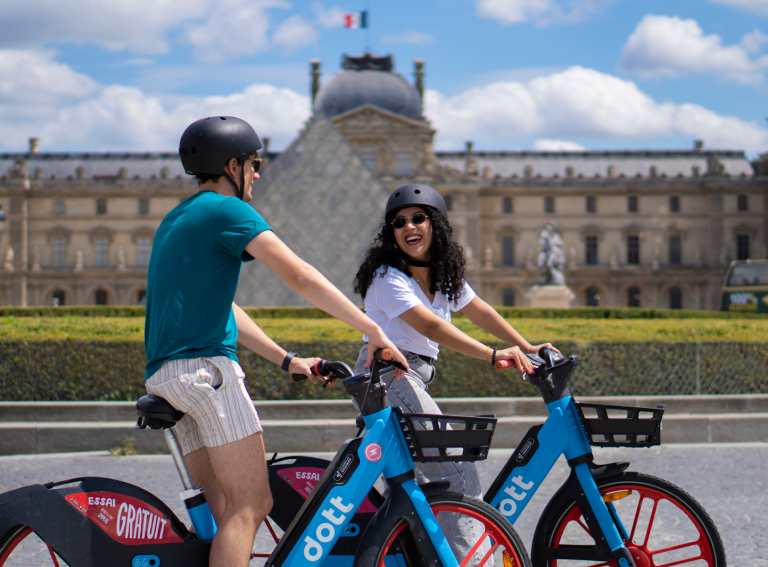As the food delivery market rapidly evolves, global micromobility provider Segway is joining the sphere with its Urban Series A200 e-bike model and B100 e-bike food delivery version.
While these models have been purchased by bike sharing operators like Swing, Dott and Spin, they are also specifically customised for couriers.
“Segway’s A200 Series and B100 food delivery version e-bike showcase advanced battery performance, expanded cargo capacity, and courier-centric controls, representing product-centric design and engineering,” Segway-Ninebot’s Strategic Product Manager of the Commercial Mobility Business Division Yao Yao tells Zag Daily.
“This focus ensures seamless, efficient deliveries, empowering food couriers to exceed customer expectations.”
A seamless ride
With three modes of power-assist to choose from, Segway’s e-bikes cater for all the surprises which may arise in urban travel, ensuring an effortless riding experience.
With real-time detection of uphill manoeuvring, the Urban A200 series and B100 can automatically increase power to assist the rider with its Intelligent Cycling System.
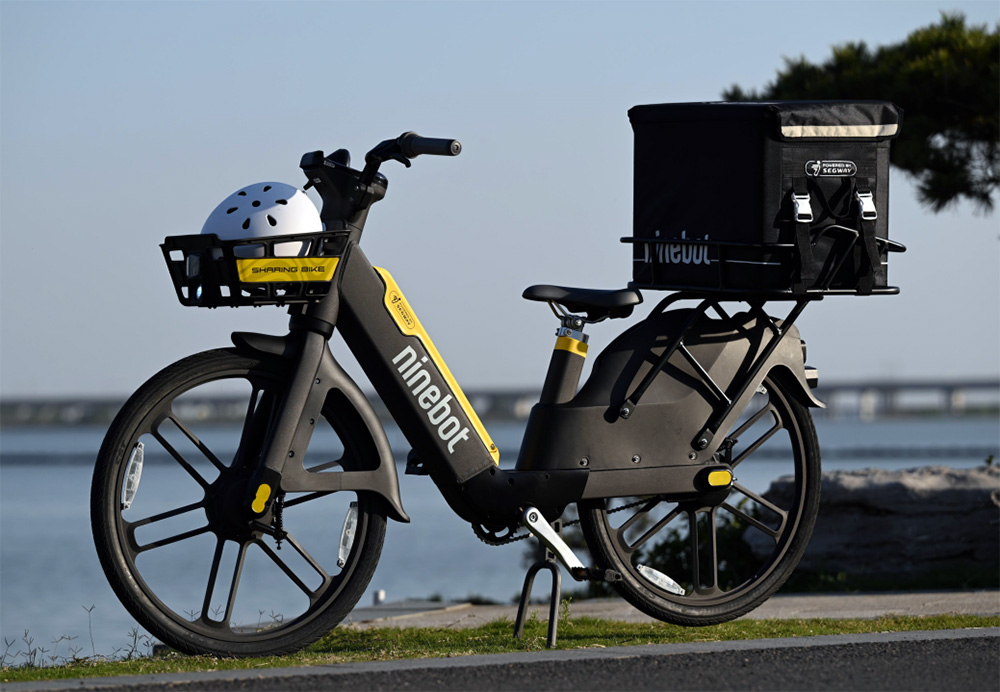
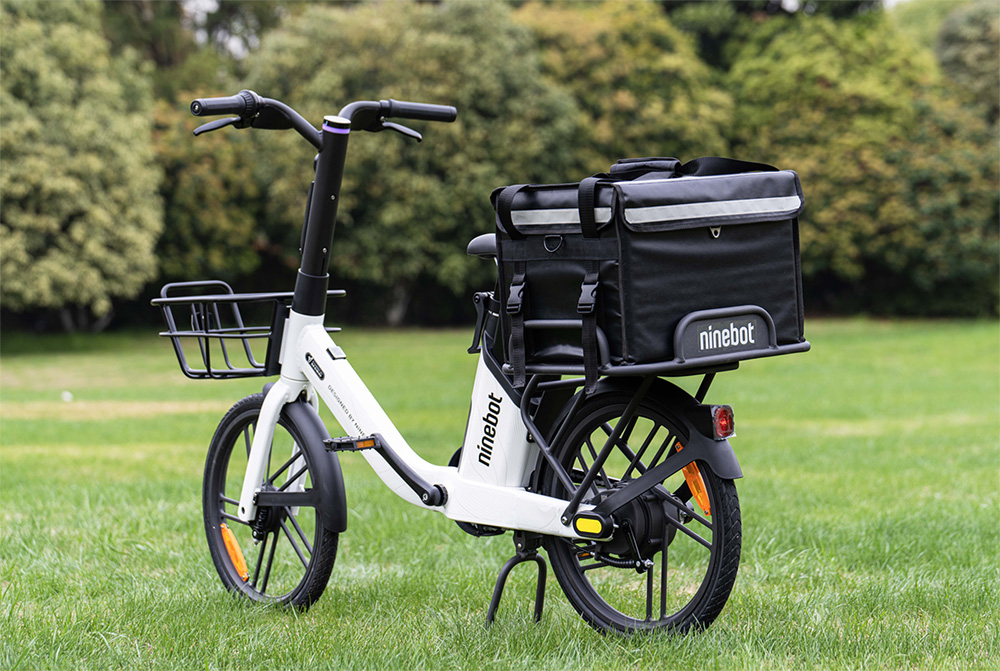
Increased resistance and durability comes from the puncture-free Pu filled rubber tires in both the A200 and B100. This means that less maintenance is required when compared with air-filled tires.
With vehicle waterproof ratings of IPX4, a rating of IPX7 for both e-bike battery packs, a controller and IoT, both the A200 and B100 are fit to efficiently deliver food in any weather conditions across their range of more than 100 kilometres and 70 kilometres respectively for each battery swap.
The integrated dashboard on the A200 e-bike enables couriers to complete their deliveries with further ease. A phone holder not only assists with navigation purposes, but it also wirelessly charges the smartphone whilst on-the-job. Additionally, the multi-functional dashboard gives clear visual indicators regarding the vehicle’s status and battery level.
Ultimate security
Electronic locks incorporated into Segway’s e-bikes give couriers the reassurances they need when stopping off to collect and deliver food orders.
The electronic wheel lock in the A200P and the B100 means riders can remotely lock their vehicle, speeding up the delivery process. Additionally, the vehicle will sound an alarm if it is illegally moved once locked.
With the A200, electronic cables are integrated with the wheel of the e-bike which means the wheels automatically lock when users lock the cable. There is also an additional option to lock the vehicle using a strong steel cable which can be securely attached to street furniture.
Additionally, the ring-shaped status light which circles the B100 e-bike’s dashboard ensures that the courier is seen with 360-degree visibility, helping to reduce the rate of injury at night and in dark weather conditions.
Tailored for purpose
Segway has designed its e-bikes to be customisable which makes them well-suited to act as sustainable modes of transport for food deliveries in urban areas.
Considering the aspects of vehicle stability and mechanical characteristics, the dimensions of the rear bracket can be customised to align with those of a delivery box, making the vehicle a solid candidate for delivery purposes.
Deelfiets making a name for itself
One bike-sharing operator taking advantage of Segway’s customisable e-bikes for food delivery is Netherlands-based Deelfiets.
With hundreds of Segway’s A200 e-bikes, Deelfiets has designed a delivery box that fits on the front of each vehicle, with a capacity for 25 kilograms.
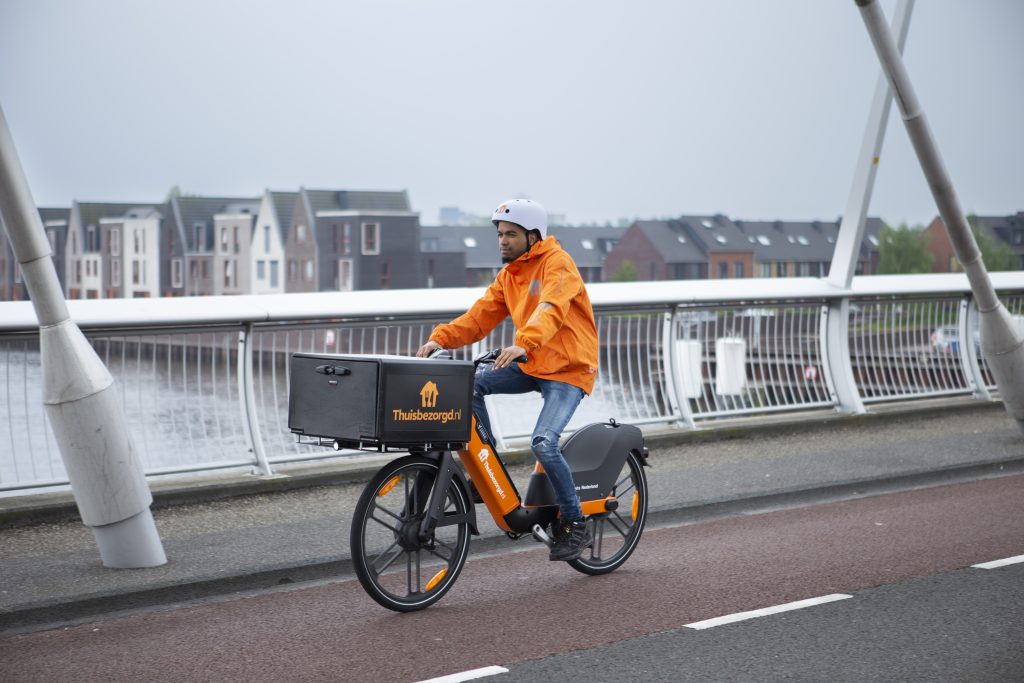
The operator tells Zag Daily that it is now in the process of designing a second delivery box located on the rear of each vehicle with an even larger capacity of 30 kilograms.
Boasting partnerships with reputable clients such as New York Pizza and Just Eat Takeaway, the delivery sector is a huge growth area for the company as it strives to be Holland’s bicycle delivery frontrunner.
Due to increased demand, Deelfiets said it is looking to purchase a “significant sized” order of e-bikes in the coming months.
Founder of Deelfiets Oumar Sylla tells Zag Daily why the food delivery service makes for a preferable business model over bike-sharing.
“Bike-sharing is pay-for-use so we don’t have visibility as to how many people will be using the bikes, but with the delivery market we know the turnover that we’ll get each week,” Oumar says.
Deelfiet’s food delivery service operates on a subscription basis, where each of its 17 client restaurants pays a modest monthly fee per bike. This offers the company regularity with its revenue whereas bike-sharing can depend on weather conditions and other external influences.
Future plans for Deelfiets include expanding its food delivery services across Holland, Belgium and Germany, as well as working with Segway towards achieving even more exciting prospects such as using the e-bike’s battery to keep food deliveries warm.
“The partnership that we have with Segway is very robust,” says Oumar. “They trust us and we trust their capacity to support our bold plans.”



